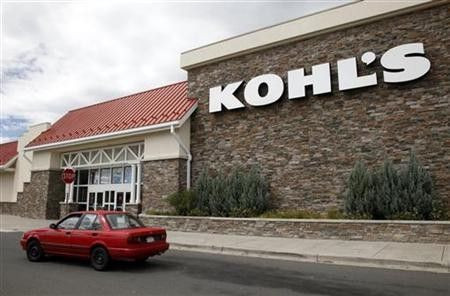Canada a magnetic north for U.S. retailers

More U.S. retailers looking for fresh markets are turning to Canada, lured by their northern neighbor's resilient economy, strong currency and the familiarity with their brands.
Express Inc, a specialty clothing retailer with about 600 U.S. stores, last week opened a Canadian store in Toronto and said it would have six by the end of the year.
Nordstrom Inc and Kohl's Corp is looking into opening department stores in Canada, though neither has announced plans.
Target Corp, the No.2 U.S. discount retail chain behind Wal-Mart Stores Inc, expects to start opening Canadian stores in 2013.
Many chains see Canada as untapped territory, having nearly run out of promising locations in the United States to open new stores, said retail consultant Wendy Evans.
Many of them have reached or are about to reach saturation in the U.S., said Evans, whose firm, Evans and Co, advises companies on cross-border expansion.
U.S. chains are also looking for ways to counter a poor outlook for retail sales at home because of unemployment and a weak economy.
Home improvement chain Lowe's Cos Inc, which last month reported worse-than-expected quarterly sales, has sought a boost in Canada where it has 28 locations. It has about 1,700 stores in the United States.
Canada is going well, Lowe's Chief Executive Robert Niblock told Reuters last month. We have got many more stores in the pipeline.
The United States has nine times as many people as Canada's population of about 34 million.
But compared to a U.S. economy in danger of tipping into a double-dip recession, Canada is holding up much better, even though it is vulnerable to any U.S. slowdown. It also has regained all the jobs lost in the 2008-09 recession.
Its currency has traded at nearly the same value as the U.S. dollar for years, flattering the top lines of retailers that report their results in greenbacks.
Zale Corp, which owns Peoples Jewellers, Canada's largest jewelry chain, said the Canadian dollar added 1 percentage point to its sales gains in established stores last fiscal year.
Zale gets 17 percent of its sales north of the border, where its stores generated on average $1.4 million last year, compared with $1.2 million stateside at its Zales chain.
Upscale jewelry store chain Tiffany & Co this year opened a store in Calgary to tap that oil boomtown's growing wealth.
PRICE CONSIDERATIONS
To be sure, Canada's economic picture is far from perfect. Unemployment rose to 7.3 percent in August, and Canadian retail sales slipped 0.6 percent in July, a steeper-than-expected drop.
Cultural differences might be a constraint. Consumer spending accounts for 58 percent of Canada's gross domestic product, compared with 70 percent in the United States. Even so, that might suggest more room for growth if Canadians adopt the free-spending ways of their American neighbors.
For retailers, one of the attractions is that they often can charge higher prices than in the United States for the same products, much to the chagrin of consumers.
J. Crew Group Inc, which last month opened its first Canadian store, annoyed Canadian shoppers with its higher prices. The company told Toronto's Globe and Mail newspaper that prices would remain about 15 percent higher because of the costs of doing business in Canada.
Canadian shoppers prize value, making the country fertile ground for lower-price chains, said John O'Bryan, vice chairman of commercial real estate firm CBRE Canada.
That's one reason that the trend of expanding in Canada is most evident among discount retailers.
Target Corp plans to open up to 150 outlets. Wal-Mart has some 329 stores in Canada, with more to come.
TJX Cos Inc, earlier this year opened its first Canadian location for its Marshalls discount department store chain, and believes the market could sustain 100 stores.
GOOD NEIGHBORS
For chains considering their first venture outside the United States, Canada is an obvious destination. Retailers and analysts say Canadians are familiar with U.S. names, in part because thousands of them make cross-border shopping trips every year to take advantage of lower prices and greater selection in the states.
Canadians have been shopping Express for years. We see a lot of Canadian activity around our border locations, said Express spokeswoman Barbara Coleman. Express may open up to 50 stores within five years.
But the push also stems from a concern among retailers that spot locations are becoming more scarce.
There is limited real estate, said Daniel Baer, Canadian retail and consumer products leader at Ernst & Young. They want to be in certain key malls where space is limited.
Working with Canadian commercial real estate developers is different than with U.S. developers, Nordstrom Chief Financial Officer Michael Koppel said at a conference earlier this month.
The upscale retailer, which is opening fewer full-service department stores at home, started looking north last year.
It's going to take us some time, Koppel said. But it's something we're very committed to and putting a lot of energy behind.
Analysts say that retailers are right to be deliberate and make sure they understand the Canadian market's nuances before taking the plunge.
Just picking up a store that you have in the U.S. and plopping it down in Toronto is not going to mean you are successful, said Alison Paul, vice chairman at Deloitte LLP.
© Copyright Thomson Reuters 2024. All rights reserved.





















